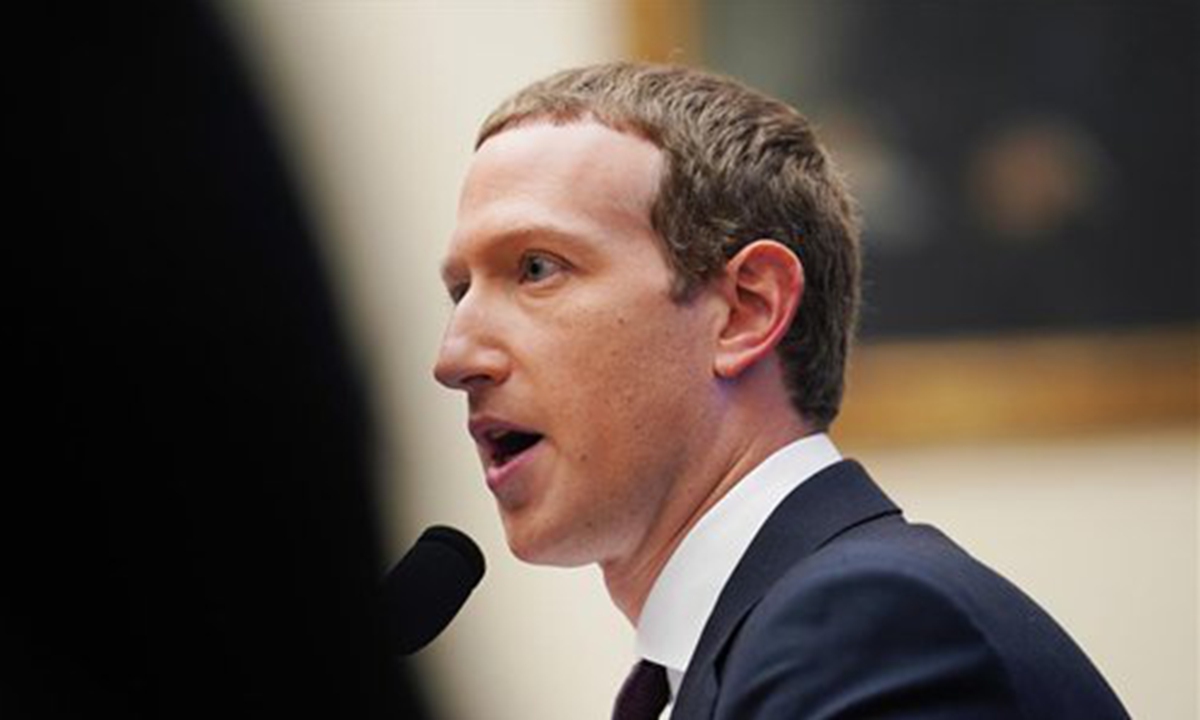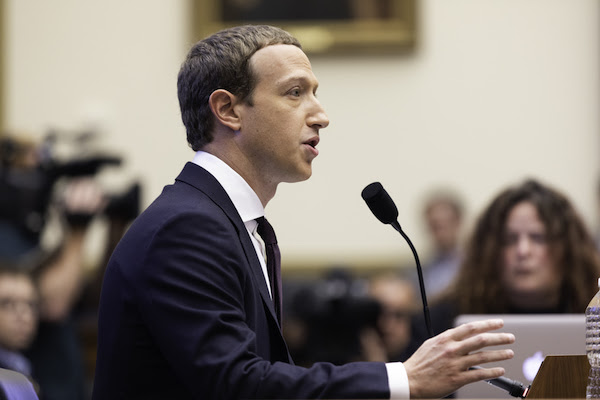| |
|
Newspaper & online reporters and analysts explore the cultural and news stories of the week, with photos frequently added by Esco20, and reveal their significance (with a slant towards Esco 20's opinions)
July 30, 2020
Big Tech faces antitrust questions on Capitol Hill
The 5 biggest little lies tech CEOs told Congress — and us
No, Google, we’re not really in control of our data. And yes, Facebook, you profit from harmful information.
But this time in front of the spotlight, some of the claims didn’t work so well. I’m not talking about the kind of outright lies that could land Mark Zuckerberg of Facebook, Tim Cook of Apple, Sundar Pichai of Google or Jeff Bezos of Amazon in trouble after taking an oath to tell the truth. But members of Congress, especially Democrats who run the committee and shepherded its months-long investigation, came prepared with questions that poked holes in Big Tech’s aging arguments — talking points that might sound reasonable on the surface, but collapse under scrutiny.
Tech giants’ products may still be very popular with consumers. But more and more of us are separating out what we love to do with our smartphone or smart speaker from the behavior of the company that makes it.
Here are the five biggest little lies that I think have run their course.
 Rep. David Cicilline a Democrat from Rhode Island and chairman of the House Judiciary Subcommittee on Antitrust, Commercial and Administrative Law, wears a protective mask during a hearing. (Graeme Jennings/Bloomberg)
Rep. David Cicilline a Democrat from Rhode Island and chairman of the House Judiciary Subcommittee on Antitrust, Commercial and Administrative Law, wears a protective mask during a hearing. (Graeme Jennings/Bloomberg)1) You’re in control of your data
Google’s Pichai repeated this tech platitude when pressed by Rep. Val Demings (D-Fla.) over the company’s decision to combine its existing trove of data with the data held by DoubleClick, a big ad network it bought. “We today make it very easy for users to be in control of their data. We have simplified their settings,” he said.
It’s true that Google as well as Facebook and other tech giants offer consumers lots of privacy knobs and switches. But if you don’t know to use them — and if they’re not easy to use — does that really put you in control? Most people don’t think so. In 2019, Pew Research found that 81 percent of Americans think they have very little or no control over the collection of their data — and 59 percent have little or no understanding about what companies do with their data. Rep. Val Demings (D-Fla.)[
Rep. Val Demings (D-Fla.)[
Goodbye, Chrome: Google’s Web browser has become spy software
I’ve likened the situation to saying anyone can fly a 747 because it has a lot of knobs and controls.Pichai borrowed this line from Facebook’s Zuckerberg, who similarly asserted that consumers are “in control” of their data in his 2018 testimony to Congress no fewer than 45 times.
Framing the debate around control actually ignores a bigger issue. Big tech companies like to say they’re collecting all this data to serve us better, when that data also means incredible power — and profit — for them.
While questioning Pichai on why Google wanted the DoubleClick data, Demings said, “You’re saying more user data does not mean the more money that Google can collect?”
“Most of the data today we collect is to help users and provide personalized experiences back,” Pichai replied.
This much is clear: Google is the world’s largest advertising company and the data it collects about us is fuel that powers it. As Demings told Pichai, “Because of Google’s dominance, users have no choice but to surrender.”
 While you’re sleeping, your iPhone stays busy. (Washington Post Illustration; iStock/The Washington Post)[
While you’re sleeping, your iPhone stays busy. (Washington Post Illustration; iStock/The Washington Post)[2) You have lots of choice
When Rep. Hank Johnson (D-Ga.) asked Apple’s Cook about the total control it has over the iPhone App Store, Cook pivoted to the idea that it faces lots of competition for selling software.
“There is a competition for developers, just like there’s a competition for customers. … Developers, they can write their apps for Android or Windows or Xbox or PlayStation,” he said. “I would describe it as a street fight for market share in the smartphone business.”
But wait: Apple has made switching from an iPhone to an Android phone as painful as possible. (Just try to get your family and friends to switch to a texting platform other than Apple’s proprietary iMessage.) And last time I checked, there weren’t a ton of mobile apps for the now-defunct Windows Mobile store, much less Xbox or PlayStation.
These companies know well that consumers are driven by convenience and use their power over the pillars of our digital lives to make it rather inconvenient to go anywhere else. Yes, you can technically export your data from Facebook and take it someplace else — but few bother trying to get their friends and family to join them.
Pichai in his opening remarks said consumers have more potential sources of information than ever. But that hasn’t reduced our reliance on Google for searches when it’s baked into the most popular Web browser, Google Chrome, and most popular mobile phone software, Google’s Android.
“It is effectively impossible to use the Internet without using in one way or another the services of these four companies,” said Rep. Jerrold Nadler (D-N.Y.) in his opening remarks.
 Rep. Jerrold Nadler (D-N.Y.[
Rep. Jerrold Nadler (D-N.Y.[3) We’re not even that big!
In his opening remarks, Bezos pulled out one of Amazon’s familiar retorts to concerns it’s a monopoly: “Amazon accounts for less than 1 percent of the [$]25 trillion in the global retail market and less than 4 percent of U.S. retail.”
But later in the hearing, Rep. Joe Neguse (D-Colo.) asked why Bezos was counting all of retail — even gas stations — as its competition. Amazon accounts for 38 percent of all U.S. online shopping, according to research firm eMarketer, and much more for products such as books.
“Factually, it’s an important distinction,” Neguse said.
Bezos, who tried to draw a vague distinction between a retail “channel” and an overall “market,” didn’t acknowledge what’s obvious to most consumers: Buying things online is not the same as going to a store. When you want to buy something online, Amazon is the place that is most likely to have it — because sellers know its scale can’t be ignored. And especially during the pandemic, buying online versus buying in stores are not equivalent.
(Bezos owns The Washington Post, but I review all technology with the same critical eye.)
Other CEOs also tried this define-the-market strategy during their testimony.
Zuckerberg suggested that Facebook was competing with all products that connect people, not just other social networking companies. “The space of people connecting with other people is a very large space,” he said. That’s true, but excluding YouTube, Facebook is the only social network used by a vast majority — 69 percent — of Americans, according to Pew. Next closest: Facebook-owned Instagram, used by 37 percent of U.S. adults.
“We don't have a dominant share in any market or in any product category where we do business,” said Apple’s Cook. That’s also true, but the billion-plus people who use iPhones have no choice but to go through Apple to buy apps and services to use on the devices.
4) We only provide you the ‘most relevant’ information
Google wants us to believe that its products only have our interest at heart. “We’ve always focused on providing users the most relevant information, and we rely on that trust for users to come back to Google every day,” Pichai said.
But Rep. David N. Cicilline (D-R.I.) asserted that Google’s business model is actually incentivized to just show, as he put it, “whatever is most profitable for Google.”
The reality is, Google’s answer to queries increasingly involves Google as an answer. A study published earlier this week by tech watchdog news outlet the Markup found that of 15,000 recent popular queries — such as “Alzheimer’s disease” — Google devoted 41 percent of the first page of mobile search results to its own sites and what it calls “direct answers,” which included information copied from other sources. Google spokesperson Lara Levin told the Markup it shouldn’t have counted “answers” as “Google.” (Google makes five times as much revenue through advertising on its own sites as it does selling ad space on outside sites, the outlet reported.)
It’s not just Google that uses its power over the software we rely on for answers to privilege itself. Rep. Jamie B. Raskin (D-Md.) asked Bezos about bias in Alexa, Amazon’s talking virtual assistant that owns more than 60 percent of the smart-speaker market. Amazon’s own Prime Music is the Alexa’s default music service, he noted.
And then Raskin asked why, when a customer asks Alexa to buy batteries, does Amazon’s talking AI recommend Amazon’s own brand?
Bezos’s response to this was honest. “I’m sure there are cases where we do promote our own products. This is, of course a common practice in business. And so it wouldn’t surprise me if Alexa sometimes does promote our own products.”

5) Social media doesn’t profit from harmful information
Toward the middle of the hearing, Zuckerberg agreed with Cicilline that the social network had a responsibility to limit the spread of content that could be harmful to people.
“I’d like to add that I do not believe that we have any incentive to have this content on our service. People don’t like it,” said Zuckerberg.
“We rank what we show in the feed based on what is going to be the most meaningful to people and is going to create long-term satisfaction, not what’s just going to get engagement or clicks today,” he said.
You are probably spreading misinformation. Here’s how to stop.
Then why is misinformation so often among the most-viewed and most-engaged content on Facebook? Cicilline read off several examples that were among the 10 most-shared Facebook posts in 2020. Just this week, a viral video claiming a false cure for the coronavirus racked up 20 million views on the social network before Facebook eventually took it off.
Facebook’s business is built on our attention — having its app or website open in front of us where it can show us ads. It seems intuitive that the more controversial a post is, the more people share it or comment on it. If Facebook has data to the contrary, I’d like to see it.
“It’s about Facebook’s business that prioritizes engagement to keep people on the platform to serve more advertisements,” said Cicilline.
Elsewhere in the testimony, where Facebook’s ownership of Instagram and WhatsApp was a hot topic, Zuckerberg also suggested that being so big helped it to spot and take down harmful information. Scale certainly has its advantages. But isn’t it also possible Facebook would doing a better job if it had competition from Instagram and WhatsApp that might, like Twitter, approach the problem differently?
Then consumers could have real choice.
/cdn.vox-cdn.com/uploads/chorus_image/image/67120899/VRG_ILLO_4109_001.0.jpg)


